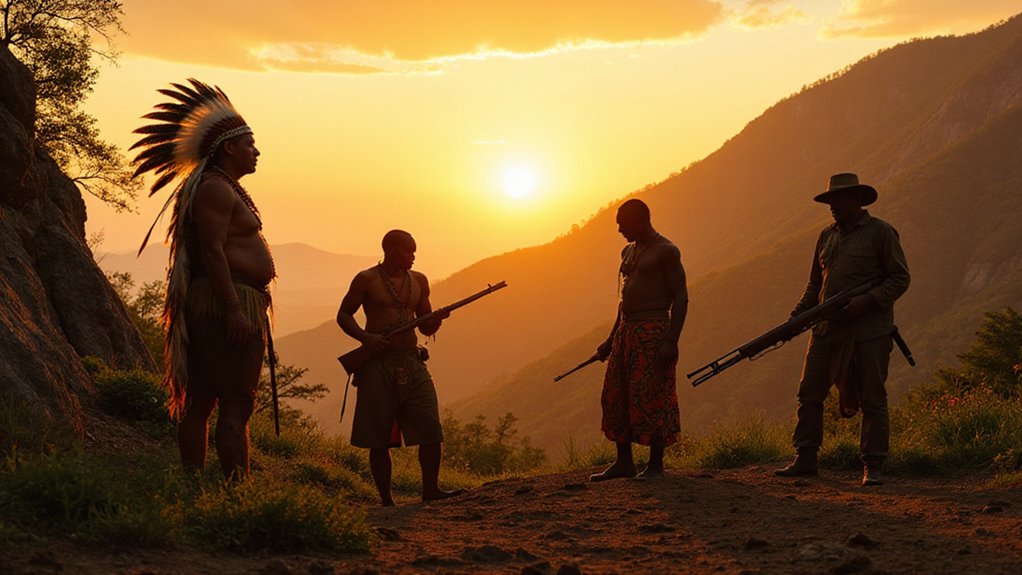When you think about hunting traditions, what comes to mind? Each culture has its own unique methods and beliefs tied to hunting that reflect their environment and history. From the Arctic to the African savannah, these traditions play a significant role in community identity and ecological balance. But how do these practices adapt in our modern world? Let’s explore the intricate relationship between tradition and contemporary influences.
What Are Hunting Traditions and Their Significance?
Hunting traditions encompass the practices, rituals, and beliefs that have evolved around the act of hunting, and they hold significant cultural, social, and ecological value.
These traditions connect you to your ancestors, offering a sense of identity and belonging. They foster community bonds as you share experiences and knowledge with fellow hunters.
Additionally, these practices often emphasize respect for wildlife and the environment, promoting sustainable hunting methods.
By participating in these traditions, you learn valuable skills, appreciate nature, and understand the delicate balance of ecosystems.
Ultimately, hunting traditions enrich your life and deepen your connection to the natural world.
How Do Hunting Traditions Vary Across Cultures?
How do different cultures shape their hunting traditions? You’ll find that local customs, beliefs, and environmental factors play significant roles.
In some cultures, hunting is a communal activity, fostering bonds and shared responsibilities. Others might view it as a rite of passage, marking a young person’s shift into adulthood.
Spiritual beliefs often influence practices, with rituals honoring the animals hunted. Additionally, laws and regulations can vary widely, reflecting cultural attitudes toward wildlife conservation.
What Unique Hunting Techniques Are Practiced Worldwide?
What unique hunting techniques have evolved across the globe?
In the Arctic, you might witness Inuit hunters using traditional kayaks and harpoons, showcasing incredible skill on icy waters.
Meanwhile, in Africa, the San people employ tracking and trapping methods, relying on deep knowledge of the land.
In Japan, you’ll find the ancient art of falconry, where trained birds help catch game.
Indigenous Australians utilize fire to drive animals, creating controlled burns that shape their environment.
Each technique reflects not just survival skills but also a profound connection to nature, demonstrating the diversity and ingenuity of hunting practices worldwide.
Why Are Hunting Traditions Important for Conservation?
Many of the unique hunting techniques practiced around the world not only showcase cultural heritage but also play an essential role in conservation efforts.
When you engage in traditional hunting, you often support sustainable practices that help maintain wildlife populations and their habitats. These traditions foster a deep connection to nature, encouraging respect for ecosystems.
Local communities benefit as they rely on hunting for food and income, promoting stewardship of natural resources. By preserving these methods, you contribute to biodiversity and guarantee that future generations can enjoy both the cultural and ecological richness that hunting traditions provide.
How Do Modern Practices Influence Traditional Hunting?
While traditional hunting practices have deep roots in cultural heritage, modern influences are reshaping these methods in significant ways. You might notice advancements in technology, like GPS and drones, enhancing tracking and safety. These tools can lead to more efficient hunts but may also disconnect you from the land.
Additionally, changing regulations and environmental awareness encourage sustainable practices, pushing you to adapt to conservation ethics. Social media plays a role too, as sharing experiences fosters community but can lead to pressure for more competitive hunting.
Balancing tradition with modernity is essential for preserving the essence of hunting while adapting to today’s world.
What Role Do Hunting Traditions Play in Indigenous Communities?
Hunting traditions hold an essential place in Indigenous communities, serving as a cornerstone of cultural identity and sustenance.
These practices connect you to your ancestors, teaching values such as respect for nature and the importance of community cooperation. Through hunting, you learn fundamental skills, share stories, and pass down knowledge to younger generations.
The rituals associated with hunting often reinforce spiritual beliefs and foster a deep sense of belonging. By participating in these traditions, you maintain a significant link to your heritage, ensuring that your community’s history and values thrive amidst modern challenges.
This connection shapes your identity and strengthens communal bonds.
How Can We Preserve Hunting Traditions for Future Generations?
To guarantee that hunting traditions endure for future generations, communities must actively engage in education and mentorship.
You can participate in workshops that teach essential skills like tracking, weapon handling, and conservation ethics. Encourage older hunters to share their knowledge with youth, fostering a sense of responsibility and respect for nature.
Creating local hunting clubs can also strengthen community bonds and provide a platform for sharing experiences. Additionally, advocate for sustainable practices that maintain wildlife populations thrive.
What Are the Ethical Considerations Surrounding Hunting Traditions?
Preserving hunting traditions goes hand in hand with understanding the ethical considerations that come with them. You’ll need to weigh the cultural significance of hunting against its impact on wildlife populations and ecosystems.
Responsible hunters prioritize sustainability, ensuring they don’t deplete resources or disrupt local habitats. It’s essential to respect animal welfare, practicing fair chase and minimizing suffering.
Engaging with local communities and respecting their views fosters a deeper understanding of ethical hunting practices. By considering these factors, you contribute to a balanced approach that honors tradition while promoting conservation and coexistence with nature.
Your choices matter in shaping the future of hunting.
